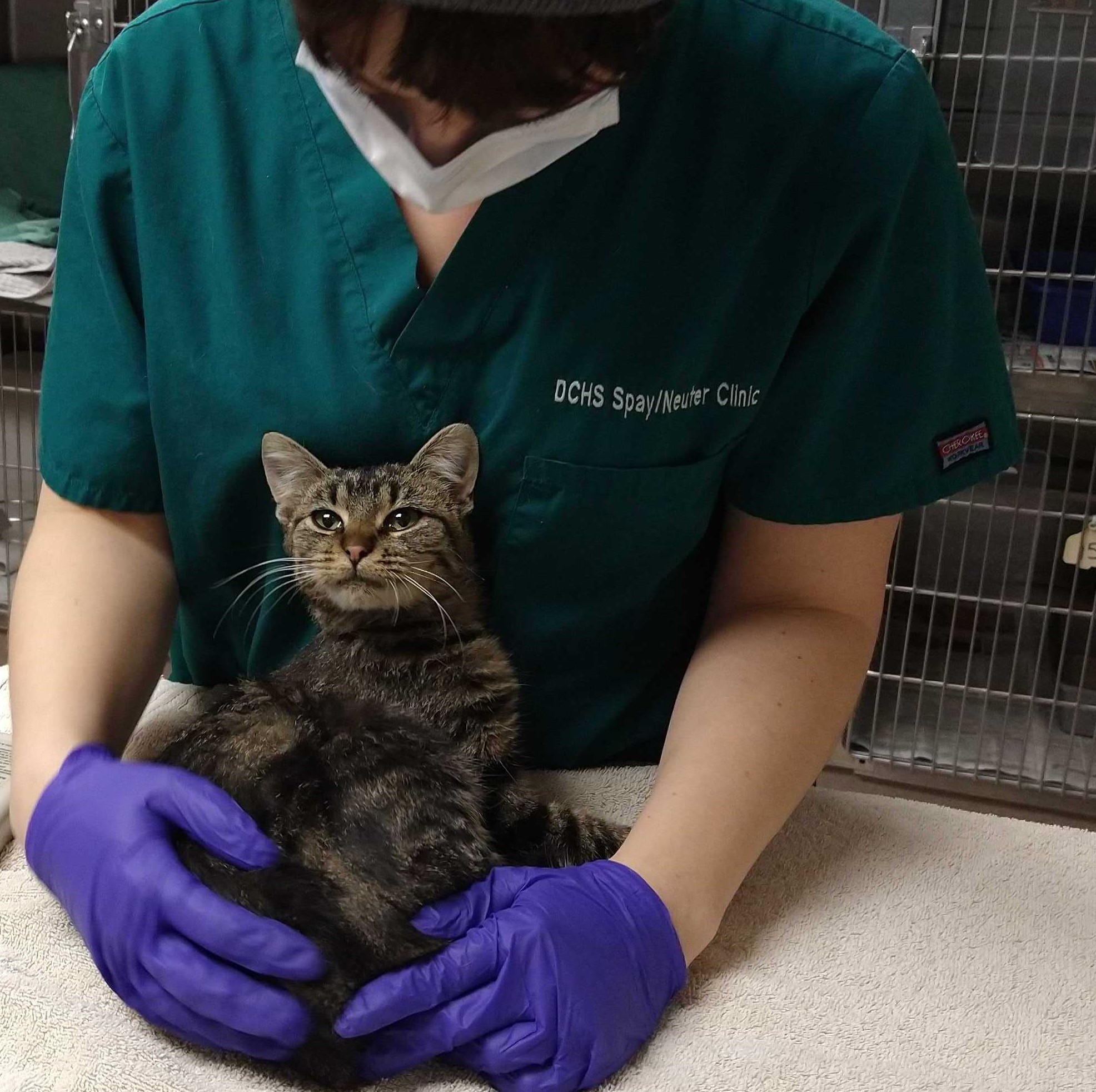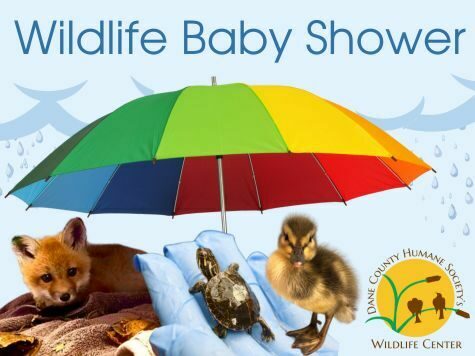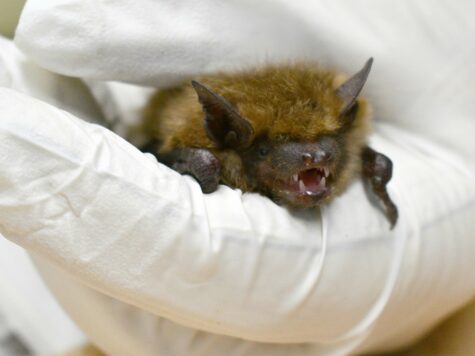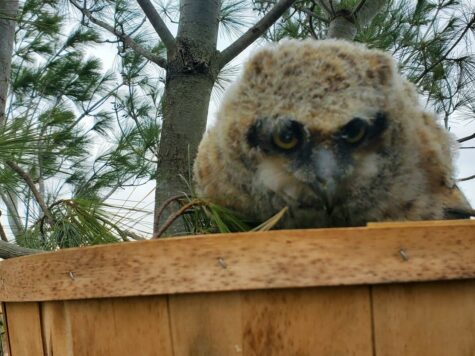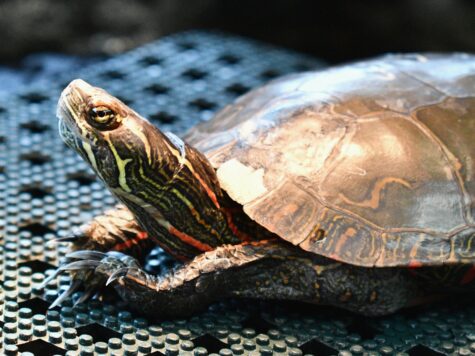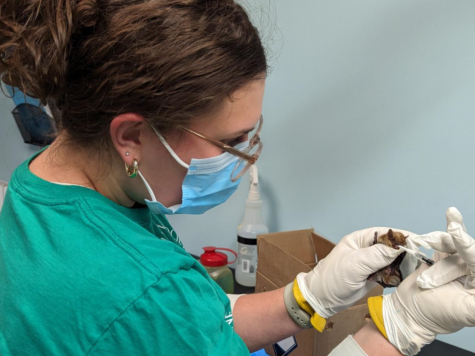Here at Dane County Humane Society (DCHS), we’ve heard many concerns about spaying or neutering pets: it’s too expensive, it’ll make my dog lazy and fat, it’s healthy for females to have at least one litter in their lifetime, my pet only lives indoors so it’s not necessary. As we head into February, National Spay and Neuter Awareness Month, we thought it would be useful to debunk some of the common myths about spaying/neutering, discuss the benefits of spaying or neutering your pets, and explain the dangers of electing not to spay/neuter.
Let’s start with the cost concern.
“There are many different options for spay/neuter surgery in Madison that provide affordable spay/neuter for dogs and cats,” says Dr. Uri Donnett, Chief Shelter Veterinarian at DCHS. “Sometimes, it is cheaper to have the surgery performed when your animal is younger and smaller than when they are fully grown and potentially much larger.” Additionally, the cost of a spay or neuter surgery is almost certainly much less than the cost of veterinary care needed should your pet develop one of the many health issues prevented by spay/neuter.
DCHS’s Pets for Life program offers spay/neuter assistance for families living in the 53713 zip code or Allied Drive neighborhood, and the ASPCA offers a searchable database where you can find a low-cost spay/neuter clinic near you.
As for making dogs lazy and fat, spaying and neutering does not cause dogs to gain weight.
“Altered dogs still have so much energy,” says Jessica Marchant, Canine Behavior Team Supervisor. “It’s lack of exercise and overfeeding that causes them to gain weight.” Your pet will remain fit and trim if you monitor their food intake and make sure they get enough exercise.
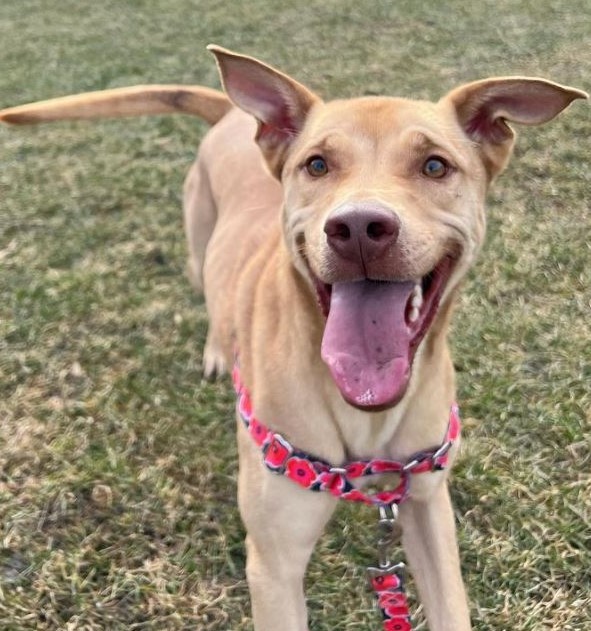
But what about the claim of a health benefit – is it healthier for female animals to have at least one litter in their lifetime than not to have one at all?
“There is no evidence that having a litter of puppies or kittens has any medical benefit for the mother,” Uri says. “But those litters can have unwanted impacts on the community where pet overpopulation is an issue. Unwanted kittens fill shelters every spring, and many parts of the country have too many puppies as well.”
Let’s do some quick math. Assume reproduction begins at age 1 and dogs have an average of 6-10 puppies per litter. With 1 litter per year, 6 puppies per litter, and each with 3 females: in the first year, we get 6 dogs, in 2 years we have 22 dogs, in 3 years we’ll have 96 dogs, and by 5 years, we have 1,536 dogs. By year 7, there are 24,576 dogs.
Assume cats have an average of 4-6 kittens per litter. With 2 litters per year, 4 kittens per litter, and each with 2 females: in the first year, we get 8 cats, in 2 years we have 24 cats, in 3 years we’ll have 128 cats, and by 5 years, we have 2,048 cats. By year 7, there are 32,768 cats.

Of course, real life isn’t a neat and tidy math equation. In reality, certain breeds of dogs can start reproducing as early as 6 months of age, and kittens could start reproducing as young as 4 months. And did we forget to mention that cats can have as many as three litters per year? Imagine how many dogs and cats we could have if just a few of the dogs in our calculations above started reproducing at 6 months instead of 1 year and just a few of the cats had 3 litters instead of 2.
We’re big fans of dogs and cats at DCHS, but tens of thousands of dogs and cats is A LOT of dogs and cats. Finding loving homes for all of those pets would be a potentially insurmountable challenge.
Perhaps you’re now convinced that unwanted breeding and exponentiating dogs and cats can be problematic. But what if your pet lives strictly indoors? Is it safe to leave them intact then?
“Any indoor animal can sneak out of an open door or window,” Uri points out. “Just keeping your pet inside does not ensure that they won’t escape and potentially breed.
“Additionally,” he continues, “even though they may only be housed indoors, there are health benefits to spaying and neutering. There are also behavioral benefits that will make it more pleasant to live indoors with them if they are spayed/neutered.”
“Neutering can help avoid some aggression problems caused by higher levels of testosterone,” says Jessica.
Erin Kruckenberg, Canine Behavior Team Specialist, adds, “Most likely pairs of dogs who fight in a home are two unneutered males. I’ve also seen neutering help reduce roaming and running away in males who were previously unneutered.”
“Male animals may be less likely to urine mark, mount, or try to escape the house if they are altered,” says Uri. “Neutering male cats can decrease the smell of their urine. Neutering male rabbits can help to prevent some unwanted behaviors from developing, including urine spraying and mounting.”
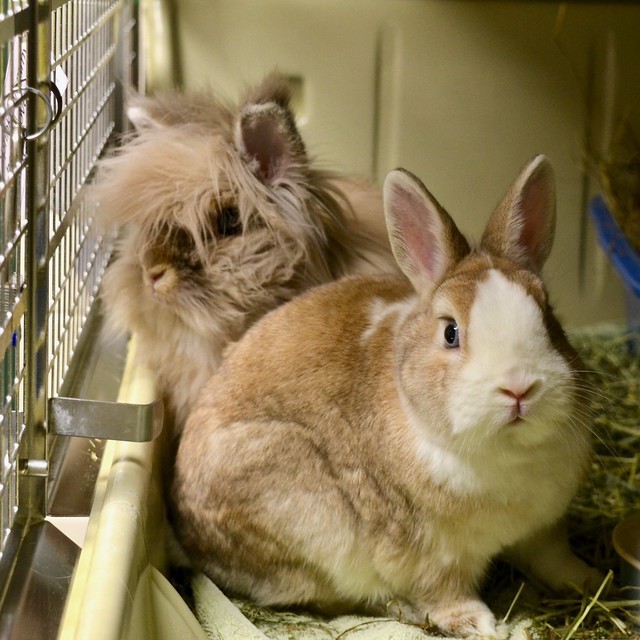
Another benefit is avoiding heat cycles. Cycles vary, but female cats usually go into heat 4 to 5 days every 3 weeks during breeding season. Female dogs experience heat cycles about twice a year (which could happen more or less frequently), and those cycles can last 21-28 days. During those heat cycles, cats exhibit behaviors like yowling and urinating more frequently – sometimes all over the house! Dogs might urine mark, and they tend to have intermittent leaking of vaginal discharge.
In addition to the behavioral benefits of spaying/neutering, there are multiple medical benefits.
“In both dogs and cats, being spayed before the first heat cycle can reduce the risk of mammary tumors later in life,” Uri explains. “This is especially important for cats, as the majority of mammary tumors in cats are malignant.” And that cancer can spread to other parts of their body.
Dogs and cats aren’t the only animals that benefit from spaying/neutering. “Spaying rabbits can prevent the development of uterine cancer,” Uri says. “Early spaying of rats can help reduce the risk of mammary tumors, which are very common tumors in rats.”

Neutering male pets removes the risk of testicular cancer, and it can also prevent male animals from developing issues with their prostates.
And cancer isn’t the only risk to intact animals.
“Adult intact female animals can get an infection in their uterus called pyometra,” explains Uri, “and this can be a life-threatening and quite expensive emergency.” Spaying prevents that infection from ever occurring, saving you the financial worries and potentially saving your pet’s life.
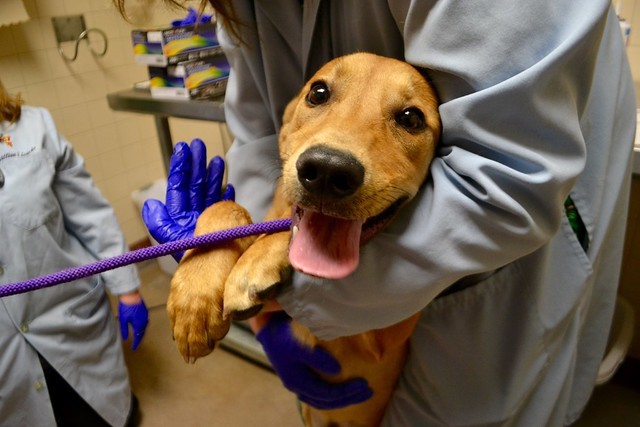
If you still have concerns about spaying or neutering your pet, talk them over with your veterinarian. If you decide keeping your pet intact is the best choice for your family, make sure you carefully monitor your pet when they’re outside, and always keep them leashed to avoid unwanted breeding. You can also check out the ASPCA’s resources on how to live with intact dogs and cats.
For information about spay/neuter assistance and how to help your pet before and after spay/neuter surgery, check out our online resources.
